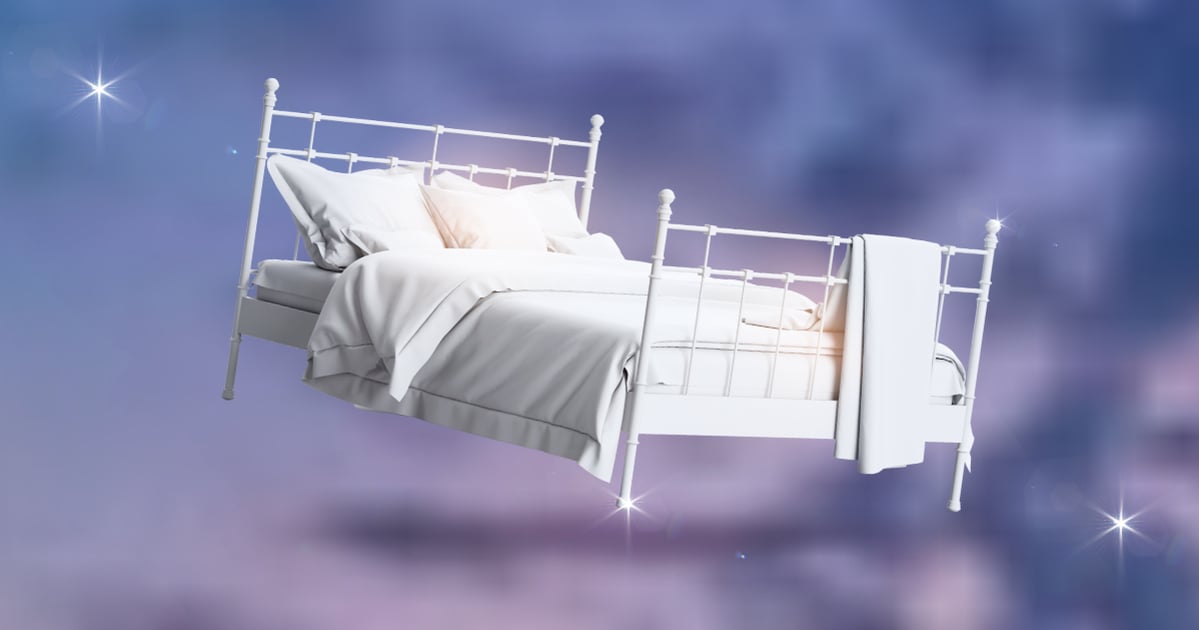I’ve been using weed to sleep pretty consistently for more than two years now, and I love it. While I have no shame telling people this (in fact, I think there are plenty of outdated stigmas surrounding cannabis that we should talk about), I often wonder – is it safe to use THC to sleep? As someone who struggles with anxiety and OCD, I find that taking half of my favorite gummy when I’m starting to wind down allows me to separate myself from the stress of the day. As I start to get laughy and engage with whatever show I’m watching, my to-do list fades into a distant memory (at least until the next morning. Type As, are you with me?!). After about two hours, I’m ready to climb into bed and drift off to sleep. And the quality of my slumber, you ask? Excellent. But is that . . . bad?
I checked in with the author of “
Experts Featured in This Article
Dr. Riley Kirk is the author of “
Kim Gamez is the founder of Sober(ish), a brand that specializes in hemp-derived products.
Why People Use Weed to Fall Asleep
Dr. Kirk perfectly summarizes the reason people incorporate THC into their sleep routine: “THC can support sleep by interacting with the body’s endocannabinoid system, which plays a critical role in regulating circadian rhythm, the internal clock that tells us when to sleep and wake. We have cannabinoid receptors in the suprachiasmatic nucleus (SCN), the region of the brain responsible for this regulation. Under normal conditions, the body releases endocannabinoids in the evening to help initiate sleep. When this rhythm is disrupted due to factor shifts like work, menopause, or chronic stress, THC can help amplify or restore that signal, making it easier to fall asleep.”
This likely explains why the founder of Sober(ish), Kim Gamez, discovered that shoppers were reaching for her original, bestselling Sober(ish) Drops, which incorporate THC – even though they weren’t made for sleep. Her team decided to lean into the feedback and created Sober(ish) Sleep Drops, which have extra ingredients to support deeper rest. Those ingredients, such as L-theanine and chamomile, are often attributed to better sleep quality, which is important; Dr. Kirk notes that regular or high-dose THC may disrupt REM (rapid eye movement) sleep. However, “the ability for THC to disrupt REM sleep is not always a bad thing,” she notes. “Many people who suffer from traumatic events, including PTSD, are specifically using cannabis to help avoid nightmares and night terrors, which can be mentally debilitating.”
THC vs. CBD For Sleep: What’s the Difference?
If you’re considering THC or CBD as a sleep aid, it’s important to understand the difference in chemical composition. Dr. Kirk breaks down some of the key words and properties you might find listed in product ingredients, as related to sleep, below.
- Cannabis: Dosage and chemical composition are important to consider. Cannabinoids include THC, CBD, CBN, and terpenes (the smelly compounds in cannabis). Indica varieties of cannabis are specifically optimal for sleep because they contain sedative terpenes such as myrcene, linalool, and β-caryophyllene. “In particular, linalool, a terpene also found in lavender, has demonstrated anxiety-reducing properties and may even help reverse memory impairments associated with REM-sleep deprivation, a concern sometimes raised with longterm cannabis use for sleep,” Dr. Kirk says.
- CBN (cannabinol): Frequently included in sleep-specific blends, CBN has mild psychoactive properties and interacts with the same receptors as THC, often promoting relaxation and supporting sleep maintenance.
- CBD: May be beneficial in reducing anxiety before bed; research shows that higher doses (200 mg or more) are needed for consistent sedative effects.
“Optimal dosing is highly individual and depends on your tolerance, metabolism, and experience level,” Dr. Kirk says. “For new consumers, a good starting point is 2.5 to 5 mg of THC or CBN, or a balanced combination of both. From there, the dose can be gradually adjusted based on how your body and brain respond.”
Is It Bad to Get High Every Night?
In short, the answer is that we can chalk this up to personal preference. It’s most important to note here that it is possible to build a tolerance to cannabis, particularly with regular or long-term use. “When cannabis is consistently used to initiate sleep, the body may become reliant on that external signal, making it more difficult to fall asleep naturally if use is suddenly discontinued,” Dr. Kirk points out. “This can lead to short-term sleep disturbances during periods of abstinence.”
“We can begin to dismantle this stigma by speaking openly and respectfully about cannabis as a legitimate therapeutic tool.”
THC has also been shown to suppress REM sleep, which may contribute to subtle memory impairments. Side effects aside, the benefits of using THC for sleep in comparison to other conventional sleep aids – medications such as benzodiazepines (Ambien) or even alcohol – are significant. Compared to these alternatives, cannabis comes with a lower risk for dependence, tolerance, and withdrawal symptoms. And, as Dr. Kirk reminds us, “While some concerns have been raised about potential reductions in REM sleep with regular THC use, it’s important to note that restful sleep with slightly reduced REM is still significantly better than no sleep at all.”
But what about the shame? “I often say, science over stigma,” Dr. Kirk says. “The therapeutic potential of THC and other cannabinoids is well-supported by a growing body of scientific research. Despite this, many people continue to feel shame around using cannabis, especially for health-related concerns like sleep, largely due to decades of misinformation and cultural bias.” Dr. Kirk suggests taking a science-based perspective on cannabis and consulting with a healthcare professional experienced in cannabinoid medicine, such as a cannabis-specialized nurse or pharmacist.
“It’s important to recognize that mainstream industries frequently normalize less-safe alternatives, such as alcohol or prescription sleep aids, while cannabis, often safer and more effective, remains unfairly stigmatized,” Dr. Kirk continues. “We can begin to dismantle this stigma by speaking openly and respectfully about cannabis as a legitimate therapeutic tool. Shifting the narrative toward one grounded in evidence, education, and personal empowerment is essential to reducing shame and improving public understanding.”
Even before talking to Dr. Kirk, I’ve personally always shared Gamez’s POV: “If something helps you rest, feel better, and stay present for your life – why feel shame about that?” For some of my recs for THC sleeping products, keep reading.




